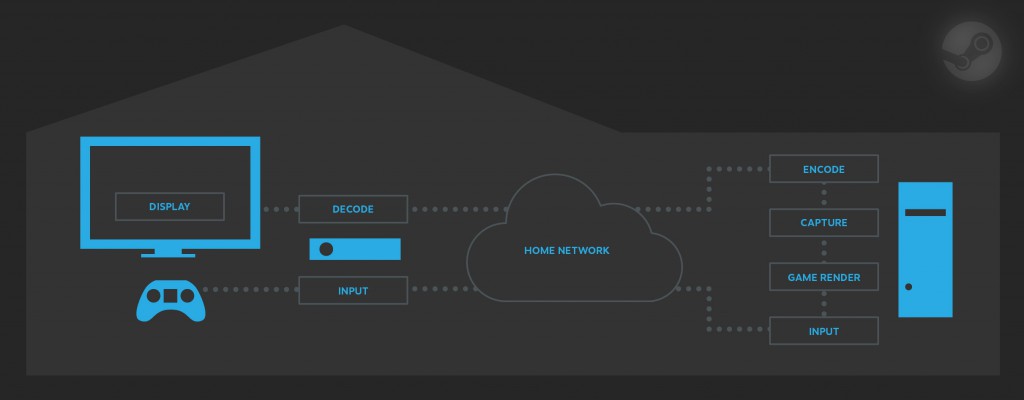Valve Software on Wednesday introduced in-home streaming for video games, a new feature of Steam software distribution service. The technology will let users to stream games from a gaming PC to an HTPC [home theater PC], a laptop or even a tablet.
Many people have multiple personal computers at home, but not all of them may be powerful enough to play modern titles. For example, home theater personal computers are built using low-power low-noise components that can hardly deliver decent performance in modern video games in full-HD (1920*1080) resolution. Thanks to Steam’s in-home streaming, it is now possible to launch a title on a powerful remote PC and play it on almost any device.
Through Steam, game audio and video is captured on the remote computer and sent to the player’s computer. The game input (keyboard, mouse or gamepad) is sent from the player’s computer to the game process on the remote computer. According to Valve, the input lag is very low and can be counted “in milliseconds”. Users are further able to change preference for speed vs. quality, limit the network bandwidth, and adjust the maximum capture resolution.
The Steam in-home streaming is currently supported only by a beta version of Steam client. Initially the technology will work only on Windows 7- and Windows 8-based PCs. Valve claims that eventually the tech will be supported by computers running other operating systems, such as Apple Mac OS X, SteamOS, or Linux.
The in-home video game streaming is another attempt by Valve to take Steam video game distribution system to the living room and low-performance computing devices. Thanks to the new technology, users will spend more time with Steam and video games and may increase their spending as well.
Discuss on our Facebook page, HERE.
KitGuru Says: Any new capability like this is generally a good thing because it provides some more freedom. It remains to be seen how well the Steam in-home streaming will work on various PCs, using different networks with countless video games available from the system.
 KitGuru KitGuru.net – Tech News | Hardware News | Hardware Reviews | IOS | Mobile | Gaming | Graphics Cards
KitGuru KitGuru.net – Tech News | Hardware News | Hardware Reviews | IOS | Mobile | Gaming | Graphics Cards



